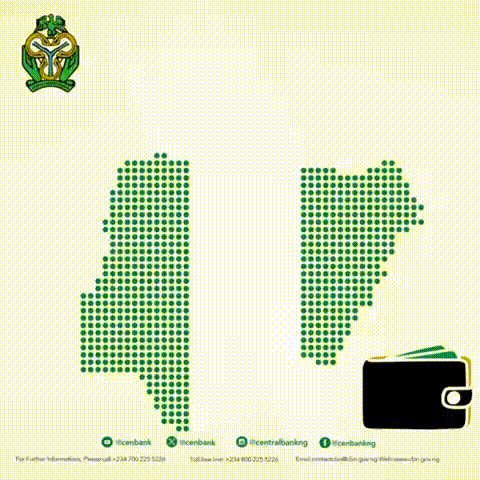
NCC boss advocates continued investment in ICT solutions to curb ICT financial crime
The Executive Vice Chairman (EVC) of NCC, Dr. Aminu Maida has said that the continued investment in ICT solutions, as well as a multidisciplinary and multi-stakeholder strategy, combining technology specialists, legal professionals, and legislators, are critical in keeping up with emerging criminal methods.
The EVC who presented a paper on ‘The use of ICT in curbing financial crime: The regulator’s perspective’ at the 11th Anniversary Lecture Series of RealNews Magazine described financial crimes as criminal activities that involve transactions, abuse, misuse, deception, or manipulation of financial systems for personal gain.
The EVC, who was represented by the Director, Public Affairs, NCC, Mr Ruben Muoka said “They include a wide range of offenses such as Insider abuse, Money Laundering, Terrorism Financing, Proliferation Financing, embezzlement, Fraud (E-fraud, Banking, securities, corporate, Intellectual Property) etc. These crimes do not only have a huge economic and social impact but can also be linked to violent crimes that lead to loss of lives. These crimes threaten the integrity, trustworthiness, stability, security, safety, and future of an entity (Country, enterprise, individual).”
SCOPE
With the increasing adoption of digital technologies, the emergence of new technologies, and the often-transnational nature of these crimes, the scope of financial crimes has broadened and created further concerns.
With the enormous potential embedded in Information Communication Technology (ICT), and it contribution to Nigerians real Gross Domestic Growth (GDP), It is contradicting to understand that the same ICT that gives access to financial crime, is the key to change of affair in curbing this type of crimes. Billions of naira are been stolen from the banking system and from individual daily, which is traced to the lack of technological investment on ICT and knowledge in combating this crime.
Statistics by the National Bureau of Statistic (NBS), for second quarter of this year, indicated that ICT in the second quarter of 2023 contributed 19.54% to GDP, which is the second highest behind Agriculture contributing 21.1%.
ICT enables reliable, safe interconnection of finances around the world but this interconnectivity using ICT could be detrimental to transparency if type approval standards set by the Nigeria Communications Commissions (NCC), are not adopted. The regulatory commission is empowered by the Nigerian Communications Act 2003 to establish and enforce standards for all telecommunications equipment in operation in the Federal Republic of Nigeria to ensure that they operate seamlessly and safely within the Nigerian telecommunications environment.
To ensure maximum interoperability and affordability for consumers, the Type Approval standards set by the Nigerian Communications Commission are based on international standards from; The International Electrotechnical Commission (IEC) and its International Special Committee on Radio Interference (CISPR), The European Committee for Electrotechnical Standardization (CENELEC) and The European Telecommunications Standards Institute (ETSI). Note that Nigeria is an associate member of IEC through the Standards Organisation of Nigeria (SON) and could become an associate member of CENELEC and ETSI.
For this reasons the telecom regulatory authority directed all equipment manufacturers, vendors and operators, including customer devices such as mobile phones and wireless adapters, must therefore ensure that their equipment conform to the applicable standards as mandated by the Commission before bringing them into Nigeria. For details click on (https://ncc.gov.ng/technical-regulation/standards/type-approval)
ON THE ROLE OF ICT IN CURBING FINANCIAL CRIMES
In his paper presentation, Maida, explained that a robust ICT systems are critical for preventing/investigating financial crimes or mitigating the risks associated with virtual assets in financial markets. These systems facilitate compliance with established standards or regulations, they also provide a platform that allows the monitoring, tracing, and analyzing of digital transactions in real-time. ICT systems support secure data storage and encryption technologies, which are critical for safeguarding sensitive financial data.
“Technological advancements have significantly aided crime prevention and law enforcement agency performance. Large datasets have been analyzed using advanced data analytics, artificial intelligence, and machine learning algorithms to look for trends that indicate criminal activity. Based on historical data and real-time intelligence, predictive police programs have arisen to foresee and prevent crimes. Digital forensics techniques have also proven useful in criminal investigations.
APPLICATIONS OF ICT IN CURBING FINANCIAL CRIMES
From the regulators perspective to combat financial crimes, innovative solutions such as blockchain, instant payments, artificial intelligence, machine learning, data analytics, regulatory technology solutions, and automated procedures are being deployed. The use of technological tools has made it significantly easier to deal with financial crime while building a long term strategy for combating it.
“Continued investment in ICT solutions, as well as a multidisciplinary and multi-stakeholder strategy, combining technology specialists, legal professionals, and legislators, are critical in keeping up with emerging criminal methods. Public education and understanding of internet safety are also important in limiting the risks linked with the spread of criminality via technology.”







